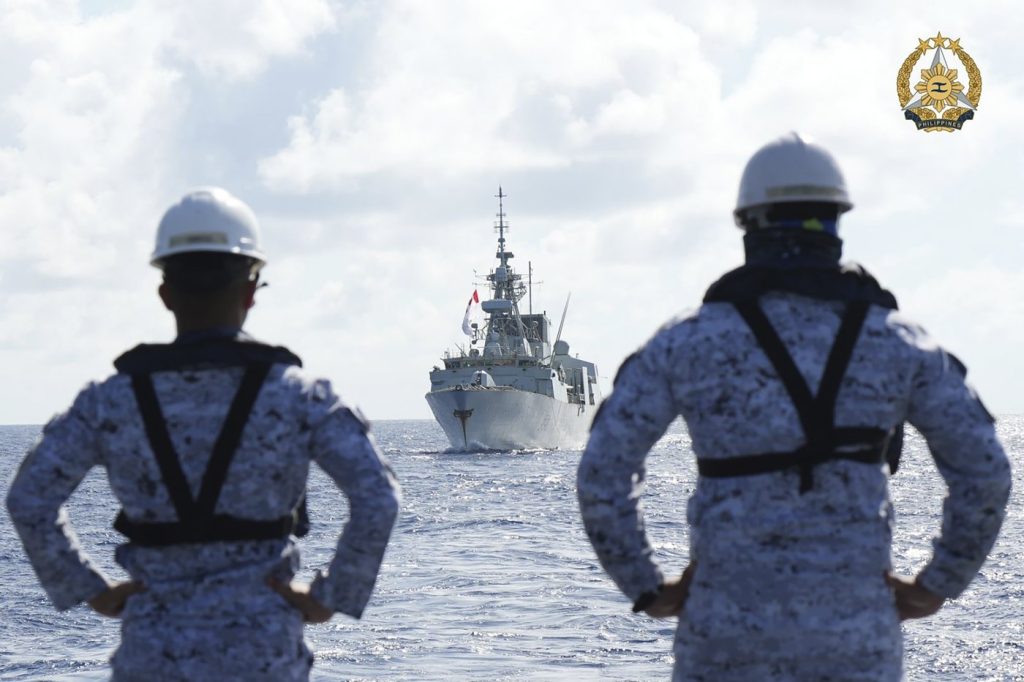MANILA, Philippines - Canada and the Philippines are nearing the completion of negotiations for a significant defense pact aimed at facilitating larger joint military exercises in the contested South China Sea. This move aligns with Canada's stance against China's "provocative and unlawful actions" in the region, as articulated by Canadian Ambassador to Manila, David Hartman. The pact is designed to enhance cooperation between their armed forces amid rising tensions in the waters claimed by multiple nations.
Canada has been increasing its military footprint in the Indo-Pacific region, demonstrating a commitment to uphold the rule of law while seeking to expand trade and investment opportunities. This approach correlates with President Ferdinand Marcos Jr.'s initiatives to strengthen defense relationships with allied nations, providing the Philippines with additional military capabilities to counter China's assertive posture in its territorial claims.
Ambassador Hartman stated that his country and the Philippines are "in the final stages of the negotiations of our status of forces visiting agreement." This agreement will enable Canada to engage more substantially in joint and multilateral military training exercises alongside the Philippines and other allies in the region. His remarks were made during an event attended by Philippine national security officials and foreign ambassadors aboard the HMCS Ottawa, a Royal Canadian Navy Halifax-class frigate visiting Manila, which is set to participate in upcoming joint drills.
The Philippine military has actively conducted multinational exercises over the past year, collaborating with military forces from the United States, Japan, France, Australia, and Canada, including operations in the contentious South China Sea, which have provoked strong reactions from China. The South China Sea is a vital global trade route, with China asserting claims over almost the entirety of the area while also maintaining a naval and coast guard presence to support its territorial assertions. In addition to China, the Philippines, Vietnam, Malaysia, Brunei, and Taiwan have overlapping claims, leading to increased confrontations, particularly between China and the Philippines in recent years.
In August 2022, Canada joined forces with the United States, Australia, and the Philippines for naval and aerial exercises aimed at promoting the rule of law and facilitating free navigation in the South China Sea. Following these maneuvers, China reportedly carried out combat patrols in the air and sea, fueling tensions; however, no direct confrontations were reported, although the Philippine military noted that three Chinese naval vessels tracked the joint operations.
Ambassador Hartman emphasized Canada’s commitment to confronting China's aggressive tactics in the region, stating, "We have been vocal in confronting the provocative and unlawful actions of the People’s Republic of China in the South China Sea and the West Philippine Sea. We will continue to do so." Furthermore, Canada entered into a defense cooperation agreement with the Philippines last year, and a recent agreement in 2023 provides the Philippines with access to Canada's "Dark Vessel Detection System.” This advanced technology uses satellites to track illicit vessels, even when they turn off their location-transmitting systems.
The Philippine coast guard has raised concerns regarding Chinese vessels on multiple occasions, alleging that Chinese ships have disabled their tracking devices to evade detection in South China Sea operations. Currently, the Philippines maintains visiting forces agreements exclusively with the United States and Australia, which offer a legal basis for the temporary presence of foreign troops for large-scale combat exercises. In July 2022, the Philippines signed a similar agreement with Japan; however, this accord has yet to receive ratification from Japanese lawmakers. Additionally, the Philippines is engaged in separate negotiations for new defense accords with France and New Zealand.










